June 24, 2025 | 10:01 GMT +7
June 24, 2025 | 10:01 GMT +7
Hotline: 0913.378.918
June 24, 2025 | 10:01 GMT +7
Hotline: 0913.378.918

Lai Chau's tea products are widely appreciated and suitable for the Middle East, North Africa, and South Asia markets. Photo: Tung Dinh.
This webinar to promoting Lai Chau province's tea products has the participation the Ambassadors from the Middle East, North Africa, and South Asia in Vietnam as well as Vietnamese Ambassadors in some countries of these regions, and Lai Chau province's tea producing and trading businesses.
Mr. Ha Trong Hai, Vice Chairman of Lai Chau Provincial People's Committee, shared that the province currently has nearly 9,000 hectares of tea with diverse varieties such as ancient Tea, Shan Tuyet, Kim Tuyen, PH8... In which, many areas are granted certificates according to safe technical processes, including VietGAP, RA...
Every year, Lai Chau province produces nearly 10 thousand tonnes of tea products with various designs such as CTC BOP tea, CTC BP tea, CTC PD tea, CTC PF tea, rolling and drying green tea, stretching green tea, Oolong tea, Matcha, Sencha, Red tea...
"Lai Chau province's tea products are currently mainly exported to Afghanistan, Pakistan, China, Taiwan, and a part supplied to domestic consumption. Of which direct export volume accounts for nearly 35%", Mr. Ha said.
With such a large area of tea materials and such diverse tea products, through this webinar, Lai Chau province hopes that the partners will know about the province's tea products and help tea growing and processing businesses connect with other countries' enterprises in tea product investment cooperation and development, trade, and consumption.
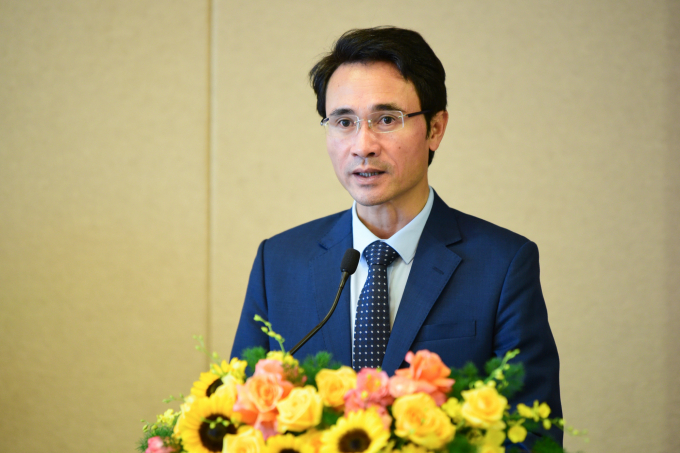
Mr. Ha Trong Hai, Vice Chairman of Lai Chau Provincial People's Committee, affirmed that the province would create all the most favorable conditions for the parties to cooperate and develop Lai Chau's tea industry. Photo: Tung Dinh.
Deputy Minister of Foreign Affairs Pham Quang Hieu affirmed that Lai Chau is a locality with unique tea products that have been exported to many countries. But in potential markets such as the Middle East, North Africa, and South Asia, Lai Chau province's tea product export has not yet achieved the commensurate turnover.
Therefore, the Ministry of Foreign Affairs and Lai Chau People's Committee coordinated to hold this webinar to connect tea buying and selling businesses. To achieve these aims soon, Mr. Ha Trong Hai affirmed: "Lai Chau People's Committee commits to creating all the most favorable conditions for the two sides to cooperate in developing the Lai Chau tea industry, ensuring the sustainable tea industry development in the future."
Appreciating the results of the webinar, Mr. Ha Trong Hai believes that the tea growing and processing enterprises of Lai Chau province will connect trade and investment cooperation with many domestic and foreign partners to create high-quality tea products with the goal of exports to overseas markets, especially in the Middle East, North Africa and South Asia.
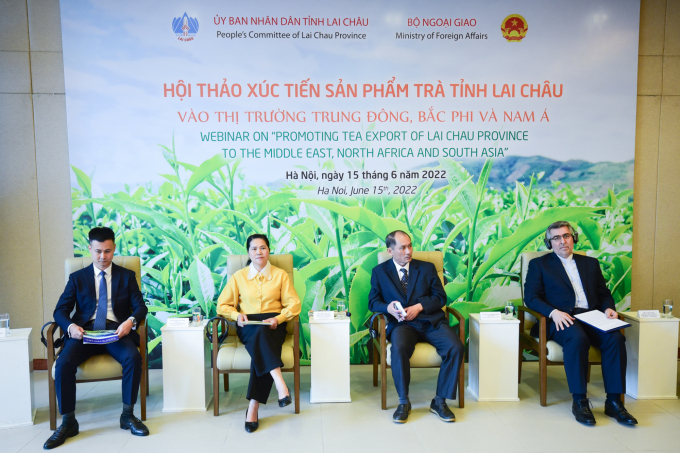
The webinar promotes tea products and helps Lai Chau province's businesses access market information. Photo: Tung Dinh.
Mrs. Nguyen Thi Loan, Director of Tam Duong Tea Company, a participant in the webinar, said that 60% of the company's products are currently exported to Pakistan and Afghanistan. 40% part left is exported to Taiwan and the European market.
She also appreciated the potential of the Middle East, North Africa, and South Asia but said that the most severe difficulty now is how to ensure the standards set by the import markets. Besides, it is the ability to access markets' information to orient production accordingly.
"Through this webinar, we have access to a lot of information about our partners and importers. From there, the company can replan and reorganize production following the needs of this Middle East, North Africa, and South Asian market," added Mrs. Nguyen Thi Loan.
At the webinar, Vietnamese Ambassador Ly Duc Trung, from Israel, encouraged travel businesses to organize group tours linked with agricultural tourism, especially producing goods according to Israeli people's tastes.
He also suggested that Israeli technology enterprises can introduce technical technologies to help improve Vietnamese agriculture's production capacity, from seeds, and irrigation to harvesting and post-harvest preservation, thereby contributing to improving Vietnamese agricultural product value.
Delegates from Israel expressed their desire to participate in exploiting cooperation opportunities between the two countries in trade and tourism, emphasizing that Israel is very eager to come to Vietnam when Vietnam declares that the Covid-19 epidemic is under control.
Translated by Ha Phuc
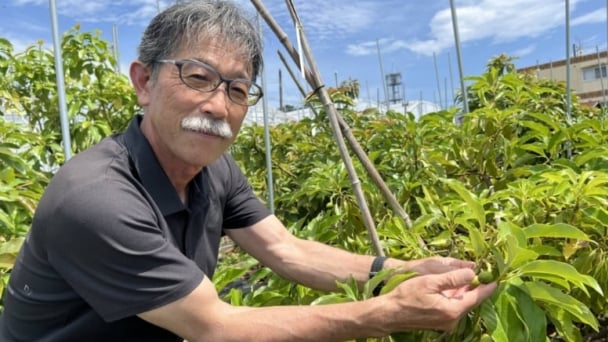
(VAN) Tsutomu Uchida, 64, wipes the sweat from his face as he walks through a farming plot filled with avocado trees in a port district of Shizuoka.
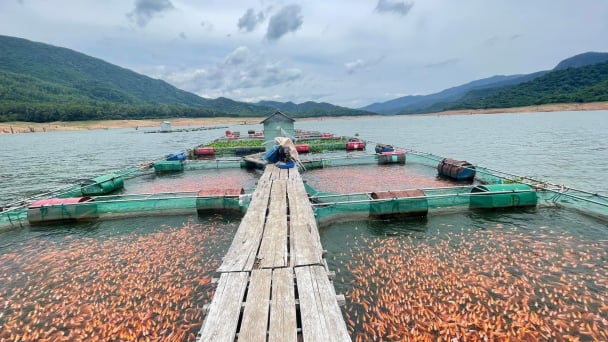
(VAN) At the request of partners, the agriculture and environment sector of Binh Dinh is determined to develop a red tilapia farming linkage chain in Dinh Binh reservoir that meets export standards.
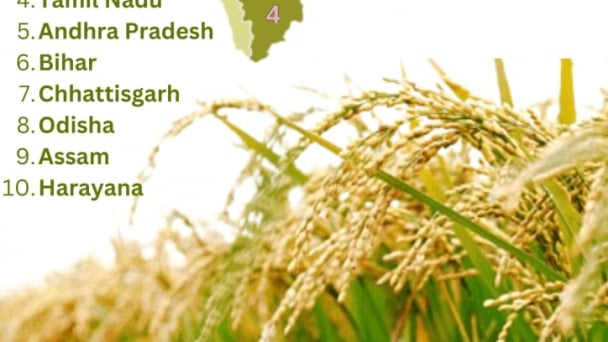
(VAN) Last week, the U.S. Department of Agriculture (USDA) released its June World Agricultural Supply and Demand Estimates (WASDE), raising projections for both Indian rice production and U.S. rice imports for the 2025/2026 marketing year.
/2025/06/17/2344-1-131758_261.jpg)
(VAN) Amid tariff risks and growing trade barriers in the U.S. market, Australia is emerging as a promising destination to sustain the growth momentum of Vietnam's shrimp exports.
/2025/06/17/2013-1-nongnghiep-112009.jpg)
(VAN) This notable growth trend reflects the global taste for fresh, nutritious fruits and the expanding use of lychees across various sectors.

(VAN) The political and cultural insulation of Japan’s beloved grain is falling apart, and experts warn the country’s relationship with the staple will have to adapt.

(VAN) Noting risks, report examines impacts of avian influenza, changing trade patterns since 2022, fish fraud, and shipping industry’s net-zero goals.